Meet Unite:ED’s newest cohort of Community Partner Fellows
A record-setting twelve doctoral students at the UW College of Education are bolstering the research and program evaluation capacity of local organizations this academic year as the members of the fourth cohort of Unite:ED’s Community Partner Fellows program.
The Community Partner Fellows program supports the development of the next generation of education researchers and scholars while at the same time supporting the work of community-based organizations dedicated to closing opportunity gaps in education. Members of the fourth cohort are Dawit Endale Alemayehu, Andrea Carreno Cortez, Dafney Blanca Dabach, Xinxin Feng, Hailey Karcher, Duab Khab (Doua Kha), Malcom King, Simone Ngongi-Lukula, Thuan “Jenn” Nguyen, Lauren Plitkins, Elizabeth Schuster, Jiaying Xiao and Wenqi Zhang.
“Our Community Partner Fellows program has now provided four cohorts of doctoral students with the opportunity to learn what it truly means to be in service of community,” says Dana Arviso, director of Unite:ED. “This experiential program also provides our Fellows with a hands-on opportunity to learn how to blend research and practice, and work alongside our local community partner organizations as they strive for equity in education.”
Read more about each of the Fellows below.
Dawit Endale Alemayehu
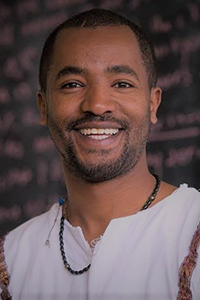 Program: Teaching, Learning and Curriculum with a focus on mathematics education
Program: Teaching, Learning and Curriculum with a focus on mathematics education
Research interests: Experiences of Black youth in mathematics and social justice mathematics
Community organization: African American Male Achievement (AAMA) - Seattle Public Schools
How does your work as a Community Partner Fellow contribute to your professional and/or personal journey?
Working with AAMA has given me an opportunity to further my work on understanding the broader school and literacy experiences of Black families, youth and community members. At AAMA I have benefited from learning with and from visionary leaders that work for an organization that is a driver of systemic change. My professional interest is in community based participatory research and co-design approaches that recruit family leadership and expertise to find enduring solutions (what AAMA folks aptly call “Legacy Work”). I believe in legacy work that first and foremost attends to race, racism and racialized experiences of Black males especially in mathematics spaces. My work has primarily focused on race conscious solutions that will advance culturally sustaining math practices and work toward building asset-based measures in schools that value Black minds, Black history, Black culture and Black leadership. My professional interest perfectly aligns with the work of AAMA. I have gotten to intimately understand the power of sustained listening and learning sessions that ensure (i) accountability to Black families and Black Kings, (ii) culturally sustaining teaching and learning practices and (iii) advancement of asset-based narratives around Black males in schools.
What is your vision for the kind of impact you’d like to make through your research and/or work in the community?
My vision is to learn with and from Black males, and design Youth Participatory Action Research to collaborate with youth around the purposes of critical and community mathematics to Seattle Black youth and their communities. My long-term vision is to participate in research work that democratizes knowledge. By this I mean giving Black and BIPOC families and youth power to co-design research questions and interventions that will lead to (i) implementations of culturally relevant math curriculum, (ii) design race-conscious measures that value the social wellness, safety, connectedness and math achievement and math enjoyment of students and (iii) empower families and youth to decide on disseminating research findings using mediums like research papers, podcasts, Instagram Live sessions and zines that make said research findings accessible to the wider community. I strongly believe in ubuntu philosophy (I am because we are); this collective responsibility philosophy shapes my scholarship, community connections and participation. In the last couple months, I have excitedly shared about AAMA’s amazing work with friends, UW colleagues and my Seattle community because I believe we are all collectively responsible for supporting organizations like AAMA ― organizations that seek to improve the literacy experiences and literacy joy of Black non-binary, Black female and Black male students.
Andrea Carreno Cortez
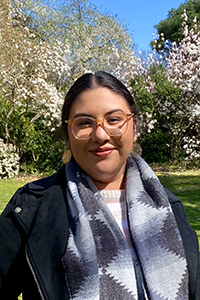 Program: Teacher Quality and Teacher Education
Program: Teacher Quality and Teacher Education
Andrea will be matched with a community organization in fall 2023.
I am interested in exploring the ways in which teacher education programs can provide structural solutions to better support the recruitment and retention of pre-service teachers who identify as Black, Indigenous, People of Color, specifically Latine/x pre-service teachers. I am also interested in the experiences of pre-service teachers who are committed to teaching towards racial and social justice. I have yet to be partnered with a community organization or program in Seattle. I am looking forward to perhaps working with a Latine/x-based organization. In my work as a doctoral student, my goal is to create more equitable opportunities in education for people who identify as Black, Indigenous, and People of Color. I believe this can be done more efficiently by collaborating with community members who surround the institution I work in. Therefore, I applied to become a Community Partners Fellow because I was interested in being of service to Seattle based organizations who are already engaging in this important work, and who I can learn, connect, and collaborate with. As a new community member in Seattle, it will be an honor to be of service to a Seattle based organization that shares a similar goal of mine of creating more equitable educational opportunities for racially and culturally diverse students and families.
Xinxin Feng
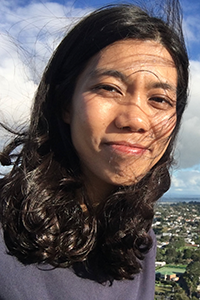 Program: Learning Sciences and Human Development
Program: Learning Sciences and Human Development
Research interests: Understanding how learning happens alongside communities, especially ways to draw upon multiple ways of knowing in learning environments.
Community organization: Technology Access Foundation & Pacific Science Center
Why did you apply to be a Community Partner Fellow?
Prior to attending graduate school, I have been working with/for community-based organizations to serve students from underrepresented communities in culturally sustaining ways. I deeply believe in the impacts community organizations bring to the young people they serve.
How does your work as a Community Partner Fellow contribute to your professional and/or personal journey?
My research focuses on building knowledge and pedagogical practices that draw on young people’s multiple ways of knowing in learning environments. These knowledge and practices are rooted in communities. Working with community organizations inspires me how multiple ways of knowing are acknowledged in day-to-day practices, which leads to studying and making sense of them.
What is your vision for the kind of impact you’d like to make through your research and/or work in the community?
That young people from non-dominant backgrounds are connected to their own assets and cultural repertoires of practice across learning environments.
What have you learned so far through your work with the community organization you’ve been paired with?
A lot! Just to start with, I learned how resilient and creative the two organizations are coping with uncertainties and challenges in their pursuit of providing the best quality of education for young people furthest away from education justice. Both organizations are around for a long time, and their willingness to serve the communities grows stronger even in difficult times, and I admire that.
Can you tell us about a high point and/or challenge that you’ve experienced through your work as a Fellow? Has there been anything that has surprised you?
It was challenging to keep the ball rolling during the disruption of COVID. These organizations work with people and work best with people, whereas the pandemic creates barriers for human connection. The fact that I am an international student fresh to the community adds issues on mobility and identities. Fortunately, the organizations are working with me to dismantle the barriers as a team. I’m sure I will come back in a couple of months sharing a high point as a result of teamwork. I can see it coming!
What inspires or motivates you when it comes to your research and/or work in the field?
What kind of a world my kid will face in her generation depends on what hard work we are carrying on today. My resolution is creating more access for young people to thrive on their own assets.
What’s next for you?
I will continue building knowledge and pedagogical practices that draw on young people’s multiple ways of knowing in learning environments.
Hailey Karcher
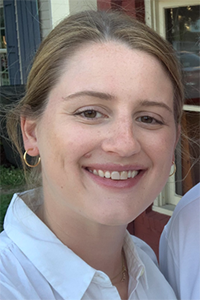 Program: Education Policy, Organization and Leadership
Program: Education Policy, Organization and Leadership
Research interests: Education policy and equity, specificially racial politics of schools, community participation and education, and the impact of suburbanization and gentrifications and metropolitan politics on schools
Community organization: Puget Sound College & Career Network
How does your work as a Community Partner Fellow contribute to your professional and/or personal journey?
It's really interesting and rewarding to work on the policy implementation side as someone currently getting their PhD and thinking a lot about policy implementation. Learning about how organizations navigate policy, and contributing to this process has been really powerful.
Duab Khab (Doua Kha)
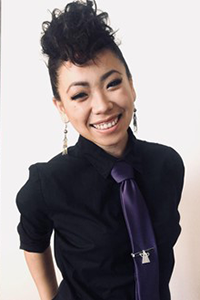 Program: Curriculum & Instruction - Multicultural Education
Program: Curriculum & Instruction - Multicultural Education
Research interests: My research focuses on how the intersection of race, gender, and sexual identity impacts queer and trans HMoob youth across different learning spaces as they navigate and negotiate safety, survival, and community.
Community organization: College Success Foundation
What inspires or motivates you when it comes to your research and/or work in the field?
Since coming to the University of Washington, the critical feedback I received from my colleagues, advisor, and mentors taught me a powerful lesson in staying close to my community while balancing the requirements of the Academy. In doing so, every research project that I hope to undertake and every piece that I will one day write is arranged as a love letter to my QT HMoob community, one that can only be forged by being in community with them. I bring my village with me into every space I enter, and I never want to lose sight of that.
Malcom King
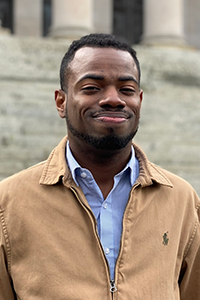 Program: Learning Sciences and Human Development program
Program: Learning Sciences and Human Development program
Research interests: The intersection of education and mental health. Over the years ahead I plan to gain a deeper understanding of how traumatic experiences impact the biological and psychological (social, emotional development) of young children of color and how we could collaboratively build systems of interdisciplinary professionals to co-envision and imagine with families and youth paths towards healing.
Community organization: Treehouse
I started learning and working as a Community Partner Fellow with Treehouse in Autumn 2021. My current work at Treehouse is to think broadly about organizational goals around shifting the organization to approach their work using more emergent strategies with a built-in learning model. As a nonprofit organization committed to ensuring that foster youth are academically achieving and entering adulthood prepared, Treehouse contributes to my professional journey by allowing me to gain insight into how private organizations work with several partners at the policy level to the local levels of school districts throughout Washington state. My work has already shown me the importance of engaging with communities you serve and inviting them into co-design and taking part in the decision-making processes. In my work at Treehouse and throughout life, I hope to continue to join communities that prioritize collaborating with communities served by envisioning interventions and equipping families and communities with emergent learning strategies to determine what works best for them on their path towards healing.
Simone Ngongi-Lukula
Program: Education Policy, Leadership and Organizations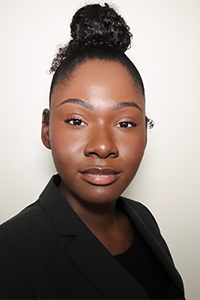
Research interests: My research interests ― immigration and schooling and multicultural education ― are motivated by my Congolese and American cultures and involve studying the impact of school on identity formation for Black African youth in the U.S.
Community organization: Supporting Partnerships in Education and Beyond (SPEB)
In this new interconnected, interdependent and global world, American public education needs to recognize and integrate the varied cultures, customs and traditions of every child into everyday teaching and learning practices. The CPF program’s strategic focus on equity and social justice align with my academic and research interests. My work with SPEB allows me the opportunity to engage in and contribute to research designed to reduce educational disparities among Black African students, particularly examining how culturally affirming practices in formal and informal learning spaces shape their academic experiences. As a Community Partner Fellow with SPEB, I am constantly reminded about the significance of identity and how identity is inextricably tied to pedagogical and political processes. I am reminded that identity, community, and other forms of cultural sharing cannot be disconnected from or disregarded in daily learning practices.
Thuan “Jenn” Nguyen
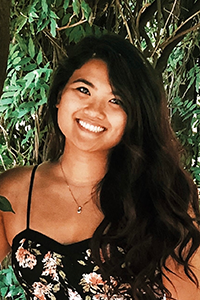 Program: Education Foundations, Leadership and Policy
Program: Education Foundations, Leadership and Policy
Research interests: Resource allocation and policy implementation through a critically conscious (anti-ableist and anti-racist) perspective
Community organization: Teach for America
I have found healing and strength in organizing and teaching students and educators of Color in ways that are intentionally designed for them. I guide my work by the truths that everyone belongs, that all freedom is bound to one another and our individual stories are worth writing into history. Through my various roles as a special and general education teacher, educational leader, diversity trainer, and policy fellow, I have witnessed the exclusion of experiences and voices in marginalized communities and became a community partner fellow to eradicate these exclusions. In response, I have a desire to educate and conduct research to heal and transform individuals, communities and systems.
Lauren Plitkins
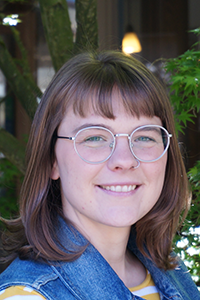 Program: Teaching, Learning and Curriculum
Program: Teaching, Learning and Curriculum
Research interests: Community-based research for educational and social equity particularly with immigrant and refugee communities
Community organization: Treehouse
How does your work as a Community Partner Fellow contribute to your professional and/or personal journey?
My work with Treehouse has and continues to teach me so much about how I want to envision and structure my professional and personal worlds. The staff have been supportive, flexible, and open to new ideas throughout my fellowship and have encouraged me to show up authentically as a critical scholar in my field. The work with Treehouse has affirmed my passion for research that centers the voices and lived expertise of communities most impacted by educational and social inequities and has been a space for me to critically reflect on how my positionality--and particularly my own family privilege as someone who has not experienced the foster care system--requires me to step back and listen deeply to those who have been impacted. Our team is currently developing a pilot advisory council which will bring in young adults impacted by foster care to engage in a co-design process that will shape the future of Treehouse.
Elizabeth Schuster
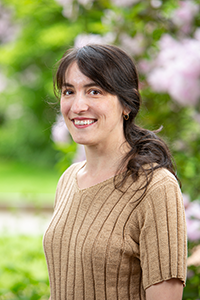 Program: Language, Literacy and Culture
Program: Language, Literacy and Culture
Research interests: Exploring ways educators can create space for multiple ways of knowing in newcomer social studies classrooms
Community organization: OneAmerica
I currently partner with OneAmerica, an immigrant rights organization in Washington, to expand dual language programs and promote language access for multilingual families in k-12 schools across the state. As a former newcomer high school teacher in California and the daughter of an immigrant parent, I hope my work can contribute to unsettling hierarchies in education that devalue immigrant students’ cultures, languages, and ways of knowing. I was drawn to working as a Community Partners Fellow because of its commitment to creating partnerships outside of academia in order to enact positive social change more immediately, as opposed to waiting until after graduation.
Jiaying Xiao
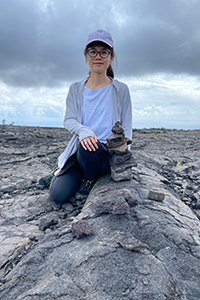 Program: Measurement & Statistics
Program: Measurement & Statistics
Research interests: Applying machine learning methods to parameter estimation in the multidimensional item response models (MIRT), extending the Cognitive Diagnostic Model (CDM) for longitudinal settings, and improving item selection criterion for Computerized Adaptive Testing (CAT).
Community organization: Seattle Public Schools Research & Evaluation Department
As a Community Partner Fellow, my work involves equity-focused research projects to help underrepresented groups (e.g., students of color, girls, and young women) get equal educational opportunities and improve the quality of programs for students of color and underrepresented communities. I would like to dedicate myself to improving the quality of programs for underserved and low-income students.
Wenqi Zhang
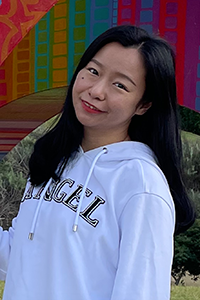 Program: Education Policy, Organizations, and Leadership program
Program: Education Policy, Organizations, and Leadership program
Research interests: Cross-organization collaboration and leadership preparation. I am interested in figuring out how to better support the collaboration between higher education institutions and different kinds of organizations, such as school districts and community-based organizations, to support principal preparation and to serve students in a context-based way.
Community organization: Boys & Girls Clubs of King County
Why did you apply to be a Community Partner Fellow?
I applied to be a Community Partner Fellow because, in my learning journey, I view myself as a researcher who contributes to bridging research and practice. I am excited to use my research skills and the focus of policy implementation to support CBOs in achieving the promises of policy. For example, my current project in BGCKC is about the implementation of Program Quality Assessment (PQA). We plan to know the challenges of using PQA tools based on social-emotional learning and provide support accordingly.
How does your work as a Community Partner Fellow contribute to your professional and/or personal journey?
Working with BGCKC contribute to my learning journey in two ways. First, it can inform my research interests in cross-organization collaboration by providing me with hands-on experience of working as a participant in cross-organization collaboration between the College of Education and BGCKC. Second, as an international student coming from China where the reform of after-school activities is happening, working in BGCKC would enable me to get information about models of high-quality after-school activities to serve the marginalized populations, especially students from low-income families, and to inform practice in China.
Contact:
Community-based organizations interested in joining the Community Partner Fellows initiative may contact Unite:Ed Director Dana Arviso at darviso@uw.edu.
For information about funding community partnership work at the College of Education, please contact Associate Director for Advancement Maya Trachtenberg at mayadt@uw.edu.